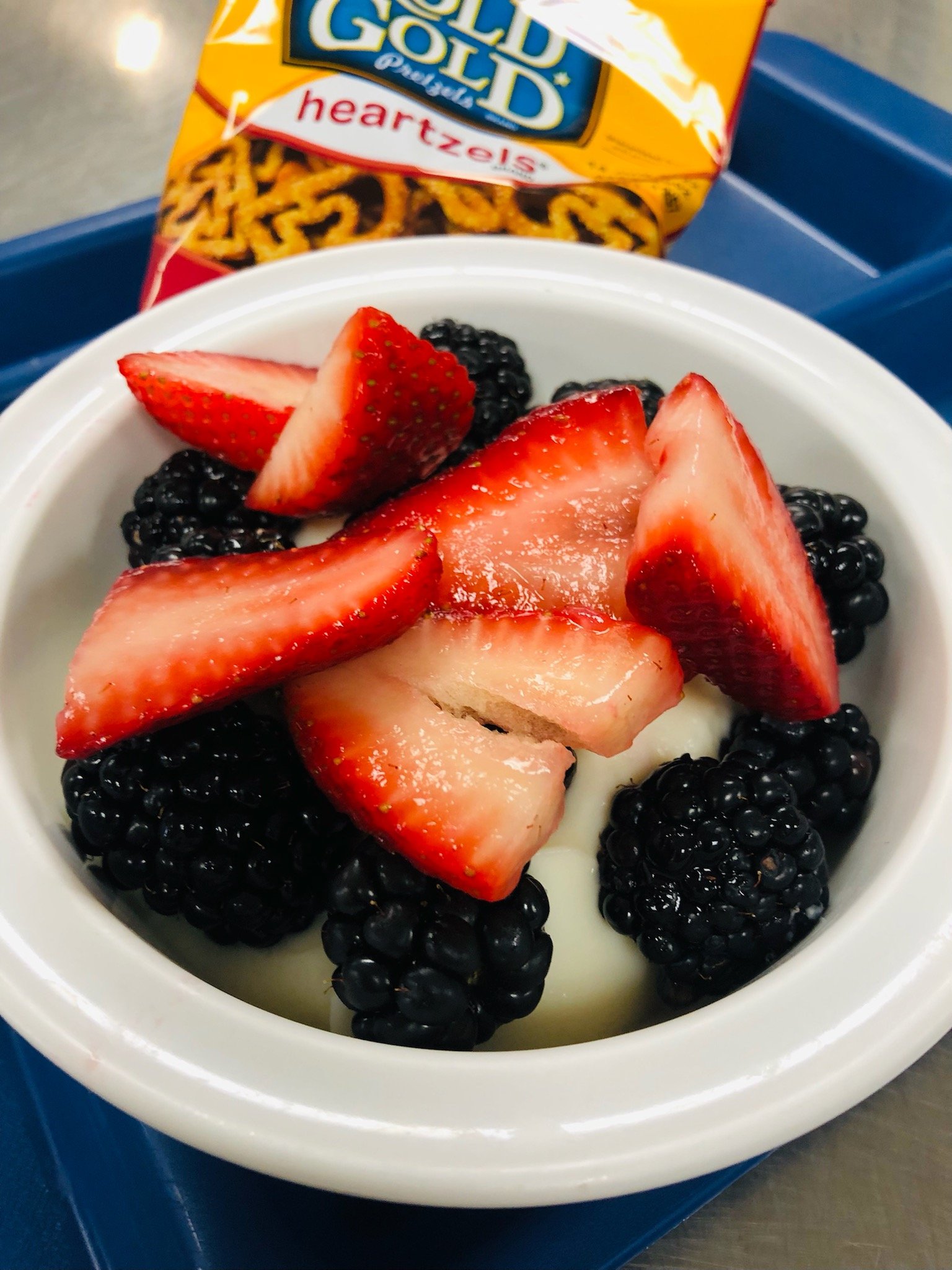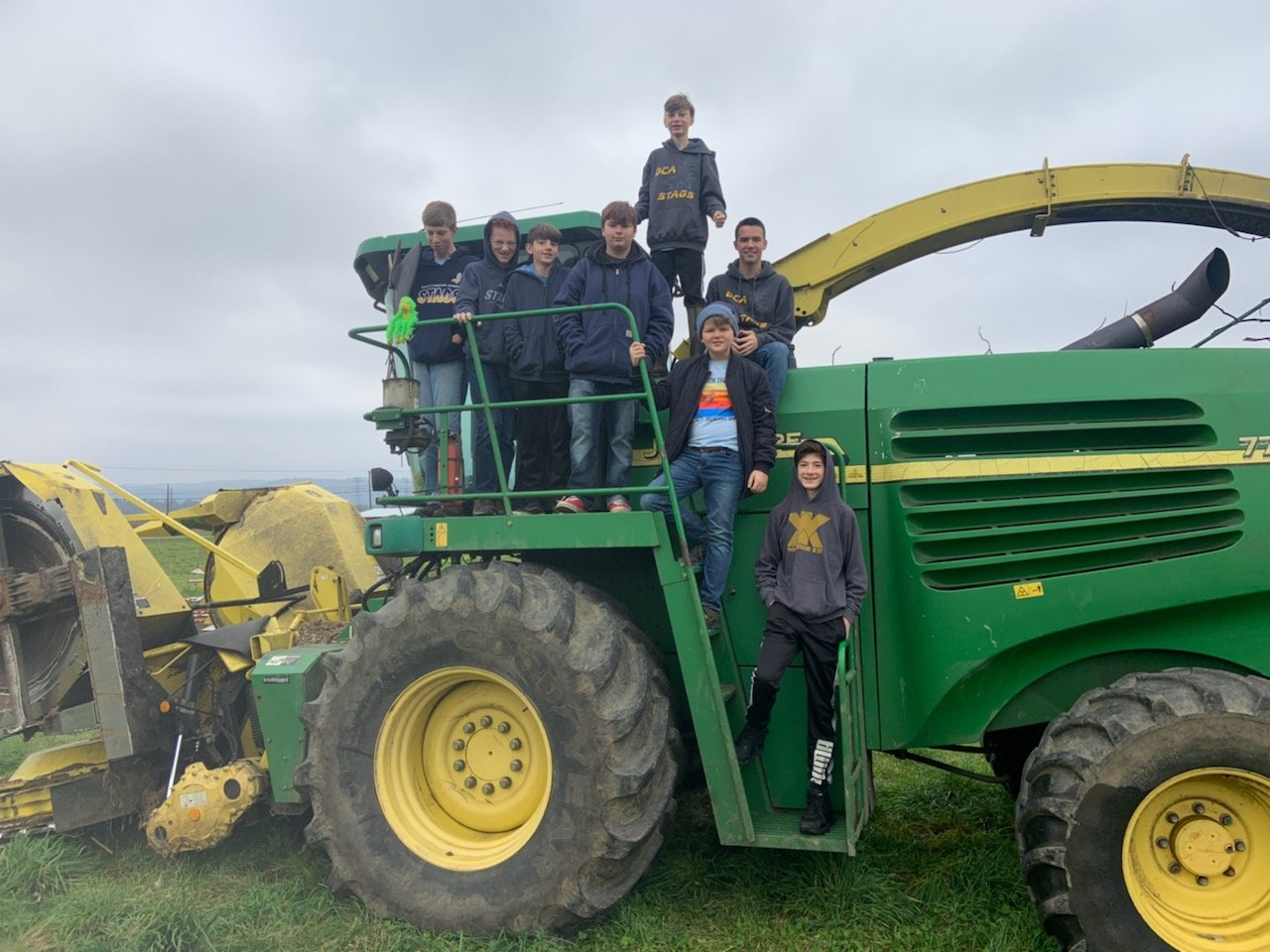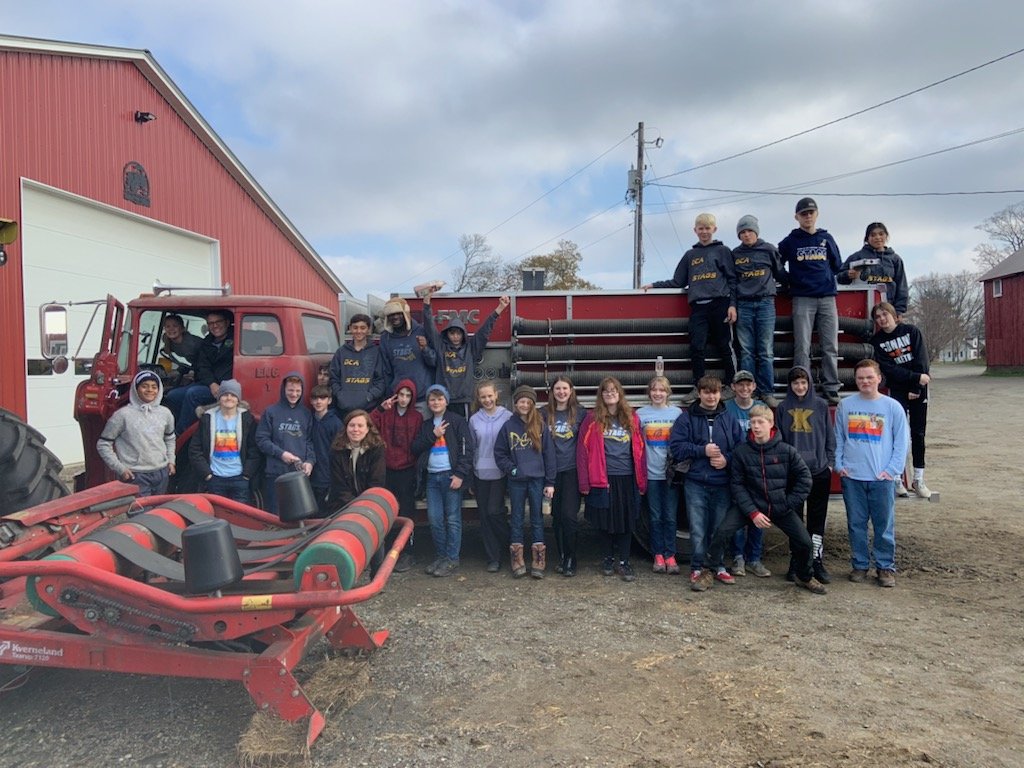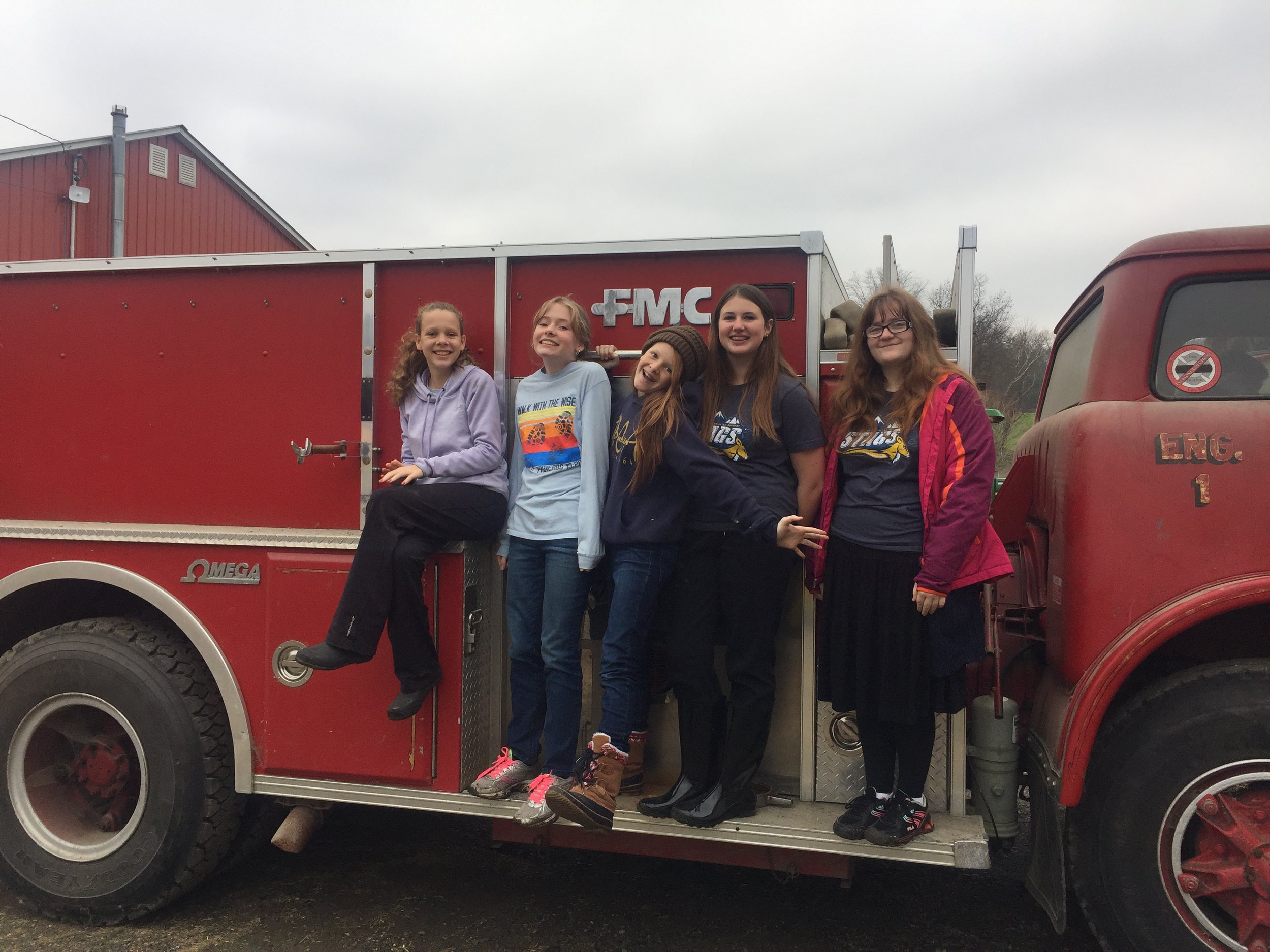“90% of the cooking we do in our kitchen is from scratch,” Craig Locarno, Director of Food Services for the Windsor Southeast Supervisory Union (WSESU) told us. “I am lucky to have a great team. I’ve been in school food service for almost 19 years, and I have the strongest team that I’ve ever had.”
Food Connects began delivering to Windsor High School at the start of this school year. While Food Connects delivers to the high school, Craig distributes the product across all his schools. And you might be surprised to hear the impetus of this partnership was… bread.
With the closure of the Vermont Bread Company, Craig Locarno was looking for a way to continue providing the students in the WSESU with locally made bread. Although the food service program is independently run and does a lot of scratch cooking, baking bread isn’t part of their daily routine. Luckily, Food Connects already has a partnership with a great local bakery that makes delicious sliced bread—The Bread Shed, located in Keene, NH.
Since our partnership with the WSESU began, we have delivered more than 1,000 loaves of bread from The Bread Shed. Food Connects and The Bread Shed worked together to develop and offer an affordable, child-friendly bread loaf that meets the U.S. Department of Agriculture’s (USDA) nutrition requirements for school lunches. Craig was one of the first school districts to jump on this opportunity. In the past few weeks, he has increased his standing bread order from 45 to 75 loaves per week as part of their new soup and sandwich day on Thursdays—which has been a hit!
Craig is always open to new products that could be integrated into his menus, so he didn’t just stop with bread. Throughout the school year, he has purchased eggs from Maple Meadow Farm located in Salisbury, VT, and potatoes from Szawlowski Potato Farms located in Hatfield, MA, among other producers (read the interview below to hear about more). We are also connecting Craig with Carissa Brewton, from Grateful Greens, to introduce him to their Food Access program—an initiative to make sunflower greens more accessible and affordable for schools.
We had the opportunity to talk to Craig about the WSESU nutrition program to learn more about what has been a success in schools and why increasing the students’ access to local food is important to him. Check out the interview!
Can you tell us more about WSESU's independently run food service?
I think what makes us different is that we emphasize supporting local and making that a priority. We’re creating a program around what we can purchase locally. Of course, we are still a public school, so we have to follow the rules of USDA, consider cost restraints when buying from food contractors—but making education and supporting local farmers a priority. And I think there are a lot more directors doing that. A lot of directors believe in the same story and the same mission. It’s still pretty new, so I think we need to push the envelope, show this story, and show what’s possible. I think it starts with the administration and board. Thankfully I’m in a school district that cares about Farm to School.
What made you decide to work with Food Connects?
You’re the closest to me in the Upper Valley. It is important that I connect with the biggest liaison between farmers and schools. And Food Connects can help me to continue to build and grow a quality program.
What products have been successful so far?
So, I think The Bread Shed bread is a big hit. It’s the only bread we offer! Our vision and mission are to support local producers. If we continue to always give them the local and the commercial options, they’ll probably choose the commercial because it’s familiar. But we’re here to educate kids and expose them to farmers and food producers in our larger community. We make maybe 600 sandwiches a week on The Bread Shed bread. And the kids are enjoying it and come back the next week and get the same sandwich.
The fish sticks from Red’s Best were a huge hit. We haven’t served fish sticks in a while since COVID-19 hit. It’s really good to hear the positive feedback about them compared to some of the more processed fish stick options. We also served Vermont Salumi’s sausage, and the kids really enjoyed it!
We hear you have an upcoming pilot of Grateful Greens. What interests you about this product for the kids?
Sprouts are a tough sell in school, but my schools are small enough that I think it will be a good fit for the two programs we’re testing it out in.
We’re going to have Carissa from Grateful Greens come up and do a sampling in April. We’ll probably introduce it that day when she comes in, and then we’ll probably run it in the fruit and veggie bar to get the kids used to it before working it into salads like our soup and salad days for our spring menu.
Why are you interested in having regionally-sourced foods in your cafeteria?
I think it’s a combination of supporting local agriculture and educating kids. They are our future, and we need to educate them about what sprouts from a local farm taste like, what fresh asparagus, and what green beans taste like and look like. I’m in school food service to show kids what local Vermont food tastes like.
It’s nice to be able to support the good things in the communities, and it’s important for kids to understand the importance of eating good local food. We still have a lot of work to do on educating kids. We’re looking for more promotional materials for the local farmers and producers for students to help them learn more.
Is there anything else you'd like to share with us?
We do Harvest of the Month taste tests, and we do a lot of other Harvest of the Month work. Plus, we’re in the middle of trying to get school compost up and running.








